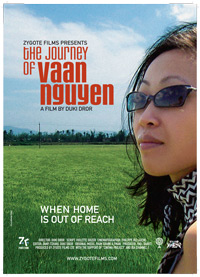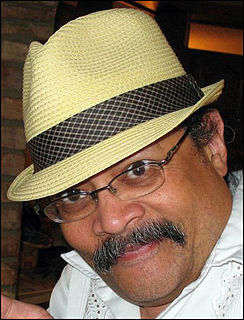
Hồ Chí Minh, born Nguyễn Sinh Cung, also known as Nguyễn Tất Thành, Nguyễn Ái Quốc, Bác Hồ, or simply Bác, was a Vietnamese revolutionary and politician. He served as Prime Minister of North Vietnam from 1945 to 1955 and President from 1945 until his death in 1969. Ideologically a Marxist–Leninist, he served as Chairman and First Secretary of the Workers' Party of Vietnam.

Kaysone Phomvihane was the first leader of the Communist Lao People's Revolutionary Party from 1955 until his death in 1992. After the Communists seized power in the wake of the Laotian Civil War, he was the de facto leader of Laos from 1975 until his death. He served as the first Prime Minister of the Lao People's Democratic Republic from 1975 to 1991 and then as the second President from 1991 to 1992.

Robert Elwood Bly is an American poet, essayist, activist and leader of the mythopoetic men's movement. His best-known prose book is Iron John: A Book About Men (1990), which spent 62 weeks on The New York Times Best Seller list, and is a key text of the mythopoetic men's movement. He won the 1968 National Book Award for Poetry for his book The Light Around the Body.
Edward Samuel Herman was an American economist, media scholar and social critic. Herman is known for his media criticism, in particular his propaganda model hypothesis developed with Noam Chomsky, a frequent co-writer. He held an appointment as Professor Emeritus of finance at the Wharton School of Business of the University of Pennsylvania and a media analyst with a specialty in corporate and regulatory issues as well as political economy. He also taught at Annenberg School for Communication at the University of Pennsylvania.
Adrian Mitchell FRSL was an English poet, novelist and playwright. A former journalist, he became a noted figure on the British Left. For almost half a century he was the foremost poet of the country's anti-Bomb movement. The critic Kenneth Tynan called him "the British Mayakovsky".

Tim Page is an English photographer who made his name during the Vietnam War and is now based in Brisbane, Australia.
James Martin Fenton is an English poet, journalist and literary critic. He is a former Oxford Professor of Poetry.

Douglas Goldring was an English writer and journalist.
The Indochina Wars were a series of wars fought in Southeast Asia from 1946 to 1991, between communist Indochinese forces against mainly French, South Vietnamese, American, Cambodian, Laotian and Chinese forces. The term "Indochina" originally referred to French Indochina, which included the current states of Vietnam, Laos and Cambodia. In current usage, it applies largely to a geographic region, rather than to a political area. The wars included:
Tom Kristensen, was a Danish poet, novelist, literary critic and journalist.

Vaan Nguyen is an Israeli poet, actress, journalist and social activist.

Tôn Đức Thắng was the second and last president of North Vietnam and the first president of the reunified Vietnam under the leadership of General Secretary Lê Duẩn. The position of president is ceremonial and Thắng was never a major policymaker or even a member of the Politburo, Vietnam's ruling council. He served as president, initially of North Vietnam from September 2, 1969, and later of a united Vietnam, until his death in 1980.
Kate Webb was a New Zealand-born Australian war correspondent for UPI and Agence France-Presse. She earned a reputation for dogged and fearless reporting throughout the Vietnam War, and at one point she was held prisoner for weeks by North Vietnamese troops. After the war, she continued to report from global hotspots including Iraq during the Gulf War.

The People's Republic of Kampuchea (PRK) was founded in Cambodia by the Salvation Front, a group of Cambodian communists dissatisfied with the Khmer Rouge after the overthrow of Democratic Kampuchea, Pol Pot's government. Brought about by an invasion from Vietnam, which routed the Khmer Rouge armies, it had Vietnam and the Soviet Union as its main allies.
On June 13, 1970, President Richard Nixon established the President's Commission on Campus unrest, which became known as the Scranton Commission after its chairman, former Pennsylvania governor William Scranton.

Vince Gotera is an American poet and writer, best known as Editor of the North American Review. In 1996, Nick Carbó called him a "leading Filipino-American poet of this generation"; later, in 2004, Carbó described him as "one of the leading Asian American poets ... willing to take a stance against American imperialism."

Fenton Johnson was an American poet, essayist, author of short stories, editor, and educator. Johnson came from a middle-class African-American family in Chicago, where he spent most his career. His work is often included in anthologies of 20th-century poetry, and he is noted for early prose poetry. Author James Weldon Johnson called Fenton, "one of the first Negro revolutionary poets”. He is also considered a forerunner of the Harlem Renaissance.

Cambodian genocide denial was the belief expressed by many Western academics that claims of atrocities by the Khmer Rouge government (1975–1979) in Cambodia were much exaggerated. Many scholars of Cambodia and intellectuals opposed to the U.S. involvement in the Vietnam War denied or minimized the human rights abuses of the Khmer Rouge, characterizing contrary reports as "tales told by refugees" and U.S. propaganda. They viewed the assumption of power by the communist Khmer Rouge as a positive development for the people of Cambodia who had been severely impacted by the Vietnam War and the Cambodian Civil War.
All the Wrong Places may refer to:
Hugh David Scott Greenway is an American journalist who has worked as a foreign affairs correspondent for Time Life, the Washington Post, and the Boston Globe. Greenway has covered conflicts in Vietnam, Laos, Cambodia, Afghanistan, Lebanon, Iraq, Pakistan, Burma, El Salvador, Nicaragua, Bosnia, and Croatia. His writing has also appeared in the New York Times, The New Yorker, the New York Review of Books, The Atlantic, the Columbia Journalism Review, and la Repubblica. Greenway is currently a columnist for Foreign Affairs and a member of the Council on Foreign Relations.











